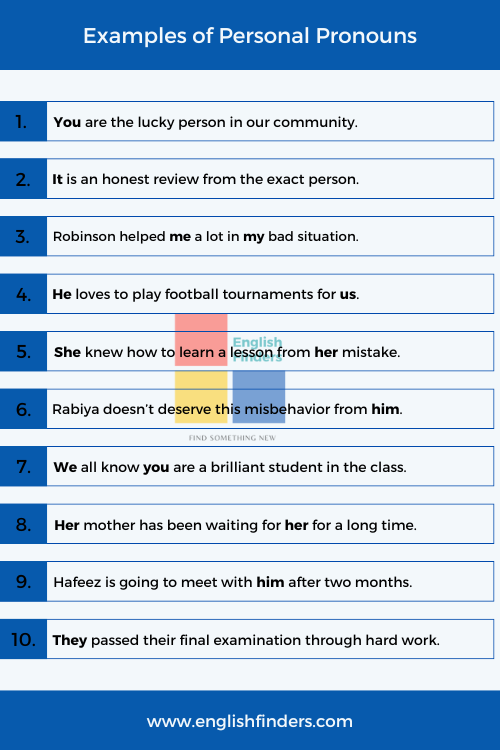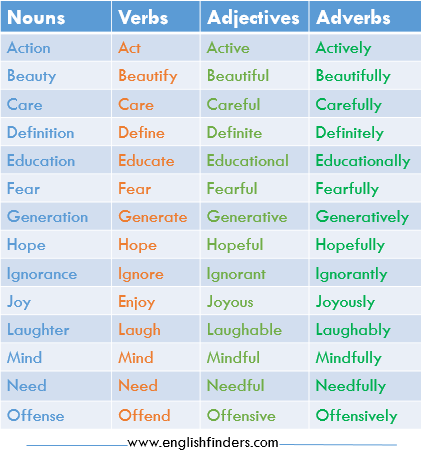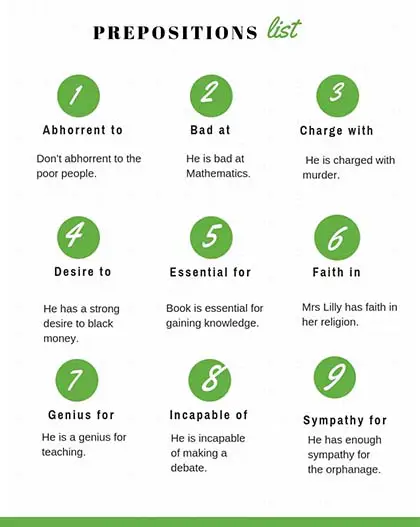Last updated on December 20th, 2024 at 10:39 am
What Is a Personal Pronoun?
Quick Navigation
A personal pronoun is a word that is used to replace a particular person or thing to avoid repetition. In other words, we can say that a pronoun that replaces a proper noun is called a personal pronoun. Personal pronouns may take various forms depending on person, number, case, and gender.
Instead of repeating a name, a personal pronoun is used to avoid redundancy and make sentences smoother and more understandable. Personal pronouns help us to make our sentences more efficient.
Singular Personal Pronouns
A personal pronoun can be used as singular if it refers to one particular person or thing. Let’s see the most common singular personal pronouns:
- First Person: I, me
- Second Person: You
- Third Person: He, she, him, her, it
Plural Personal Pronouns
A personal pronoun can be used as plural if it refers to more than one person or thing. Let’s see the most common plural personal pronouns:
- First Person: We, us
- Second Person: You
- Third Person: They, them
Subject Pronouns and Object Pronouns
Personal pronouns can be used as the subject or object in a sentence. Subject pronouns are called the nominative case, while object pronouns are called the object case. Let us see the subject pronouns and the object pronouns in the below table:
| Subject Pronouns | Object Pronouns |
| I | Me |
| He | Him |
| She | Her |
| We | Us |
| They | Them |
| Who | Whom |
| You | You |
| It | It |
20 Examples of Personal Pronouns
Let’s see the 20 useful examples of personal pronouns:
- I am very happy to get the honor from the president.
- He loves to play football tournaments for us.
- She knew how to learn a lesson from her mistake.
- We all know you are a brilliant student in the class.
- They are the victim of the conspiracy.
- Who will play the game against our opponent?
- You are the lucky person in our community.
- It is an honest review from the exact person.
- Robinson helped me a lot in my bad situation.
- Rabiya doesn’t deserve this misbehavior from him.
- Her mother has been waiting for her for a long time.
- This victory is undoubtedly a matter of pride for us.
- Whom do you select as your life partner?
- I have learned many things from the discussion.
- Hafeez is going to meet with him after two months.
- He plays a significant role in securing the house.
- You can take the opportunity to get a handsome job.
- We will sacrifice our valuable time only for you.
- They passed their final examination through hard work.
- Do you learn something from this lesson?
Final Thoughts
Personal pronouns are very useful in making communication more efficient, clear, and engaging by replacing nouns and avoiding repetition. So we need to understand the personal pronouns and their usage to improve our English grammar skills. That’s why we designed this lesson to help you understand the personal pronouns correctly.
Frequently Asked Questions
What are personal pronouns?
Personal pronouns replace specific nouns referring to people or things, helping to avoid repetition and making sentences clearer and more concise.
How many types of personal pronouns are there?
Personal pronouns are categorized based on person (first, second, third), number (singular, plural), and case (subjective, objective, possessive), resulting in several types like subjective personal pronouns, objective personal pronouns, and possessive personal pronouns.
What is the difference between “I” and “me”?
“I” is a subjective personal pronoun used as the subject of a sentence, while “me” is an objective personal pronoun used as the object of a verb or preposition.

Azizul Hakim is the founder & CEO of englishfinders.com. He is a passionate writer, English instructor, and content creator. He has completed his graduation and post-graduation in English language and literature.




